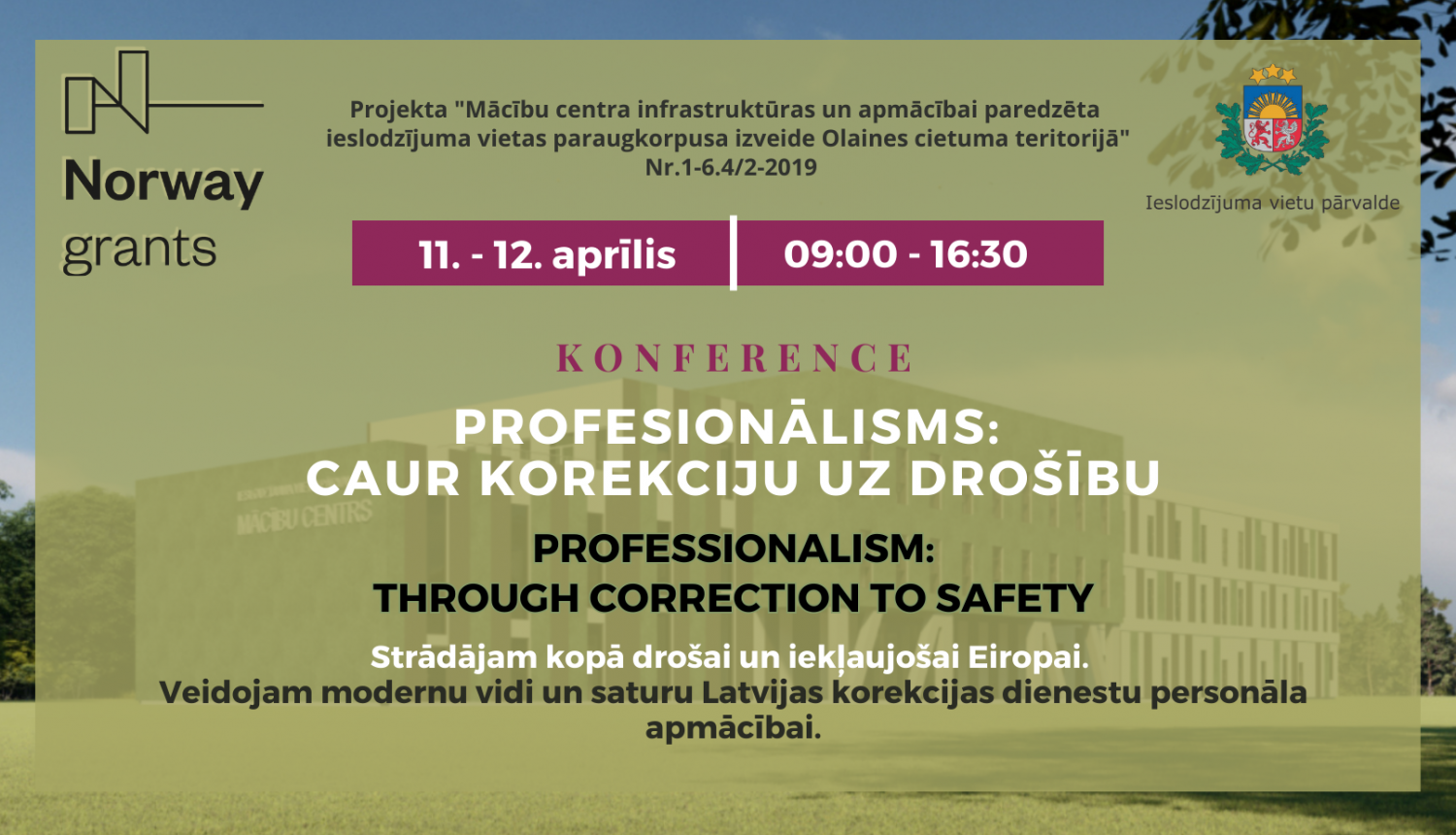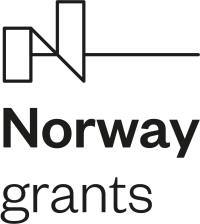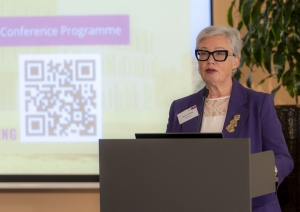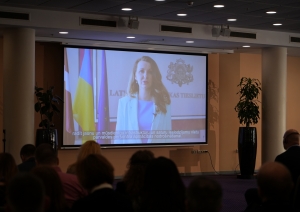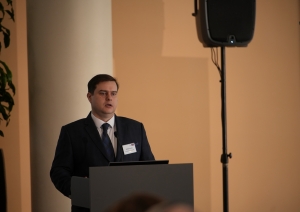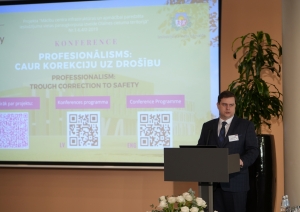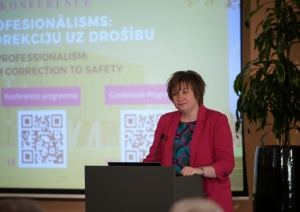The conference is being held on April 11 and 12, within the framework of the Norway Grants Programme "Correctional Services" project “Establishment of Training centre infrastructure and model prison blocks for training opportunities in the Olaine prison territory” thus marking its end.
At the conference, results achieved during the project were examined from various aspects as well as the nuances of the implementation and application of new practices in the new Training Centre were highlighted. Also the role and importance of Training Centre in the development of the correctional service system in Latvia and other European countries was discussed.
Conference was opened by the Minister of Justice of the Republic of Latvia, Inese Lībiņa-Egnere, emphasizing in her video speech:
.. highly professional and qualified personnel of the correctional service is one of the main keys to success in strengthening the security of our country and society. The professional training of those employed in prisons is of great importance in maintaining order and respecting human rights, in the eradication of the informal hierarchy of inmates, as well as in the successful rehabilitation of inmates."
The opening speeches of the conference were made by the Director General of the Latvian Prison Administration, Dmitrijs Kaļins, the Deputy State Secretary on Law Policy of the Ministry of Justice, Anda Smiltēna, and the Director of International Cooperation of the Directorate of Norwegian Correctional Service, Kim Ekhaugen.
On the first day of the conference there were both foreign representatives from Norway, Romania and the United Kingdom, as well as Latvian speakers :
- NFI Project manager and Head of Strategy department of the Latvian Prison Administration Lāsma Kauliņa gave a brief insight into the project implementation process and the achieved results, including a video about the construction of the new Training Centre and the planned content;
- Head of the Training Centre of the Latvian Prison Administration, Kristīne Beitele emphasized the need for changes in the system of correctional services and the impact of the quality of education on ensuring the effective sentence execution, as well as the achievement of the set goal of resocialization - the reintegration of inmates into society.
- Researchers of the MQPL study (Measuring Quality of Prison Life) in Latvia, Krišus Ancāns and Inese Jokste presented the importance, results and impact of the study on the staff's work environment and the quality of life or well-being of prisoners from 4 Latvian prisons.Presentation was supplemented by Professor Alison Liebling of the University of Cambridge.
On the 1st day of the conference, its participants had the opportunity to learn more about the work of correctional services in other European countries, their experience when developing improvements, best practice and challenges. During the panel discussion, foreign guests shared their experiences on the role of Training Centers in the development of the correctional field.
This NFI project envisages not only to build a new infrastructure but to also change the way of thinking, improving the quality of work and introducing new practices in daily work in the structural units of the Latvian Prison Administration.
The conference was attended by representatives of the structural units and central office of the Latvian Prison Administration, the Ministry of Justice, the State Probation Service, the Norwegian Embassy in Latvia and etc. representatives of cooperation institutions. The conference was also attended by a large delegation of foreign guests, including representatives of the correctional services of Norway, Poland, Czech Republic, Croatia, Romania, Bulgaria and Lithuania.
Working together for a safe and inclusive Europe.
Conference was held within the framework of the project “Establishment of Training centre infrastructure and model prison blocks for training opportunities in the Olaine prison territory” of the Norwegian financial instrument programme “Correctional Services”.



